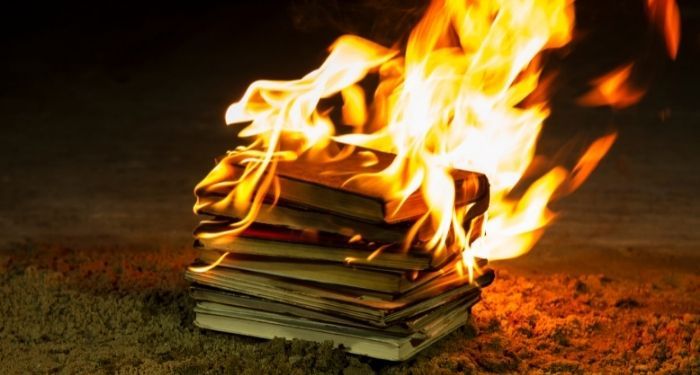The Day They Burnt the Books
On a warm summer day, a group of angry men gathered in the town square, armed with torches and a hatred for anything that challenged their beliefs. They had one goal in mind: to rid their community of any and all books that they deemed to be "un-American" or "immoral."
The first to go were the novels, labeled as "trash" and "indecent." Classic works of literature, such as "The Great Gatsby" and "To Kill a Mockingbird," were thrown into the flames without a second thought. Next, the men turned their attention to the non-fiction section, tearing out pages of history books and tossing them into the fire.
As the flames grew higher and the smoke filled the air, a small group of people stood by and watched in horror. They were the town's intellectuals and free-thinkers, those who valued knowledge and the power of the written word. They knew that this act of book burning was not only a threat to their own personal beliefs, but a dangerous attack on the foundations of society.
The book burners, however, saw things differently. They saw the books as a threat to their way of life and to the values that they held dear. They saw them as a corrupting influence that needed to be eliminated. And so, they continued their rampage, destroying every book that they could get their hands on.
As the day came to an end and the fire died down, the town was left with a pile of ashes and a sense of sadness and loss. The intellectuals mourned the destruction of so much knowledge and wisdom, while the book burners celebrated their victory over the "evil" books.
But the aftermath of this event was not what either side had expected. Far from eliminating the corrupting influence of the books, the book burning only served to spark a greater curiosity and desire to read in the town's citizens. People who had never before shown an interest in reading were suddenly desperate to get their hands on any book they could find.
The day they burnt the books ended up being a turning point in the town's history. It marked the beginning of a new era of intellectual curiosity and a greater appreciation for the power of the written word. And though the flames may have destroyed the physical books, they could not extinguish the desire for knowledge and understanding that burned within the hearts of the town's people.








